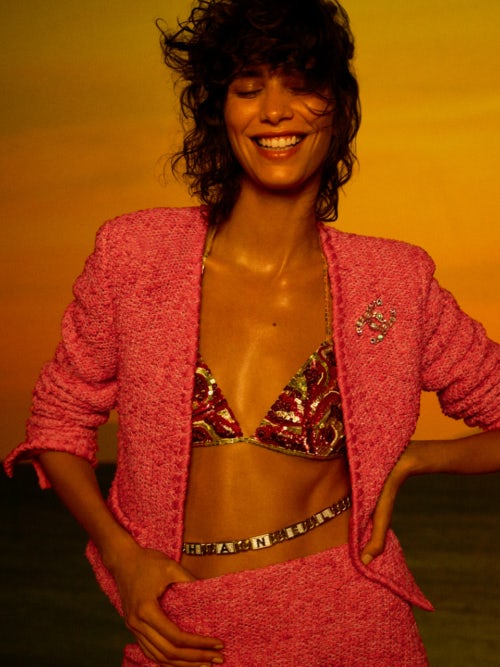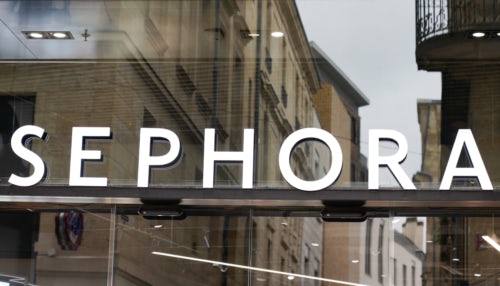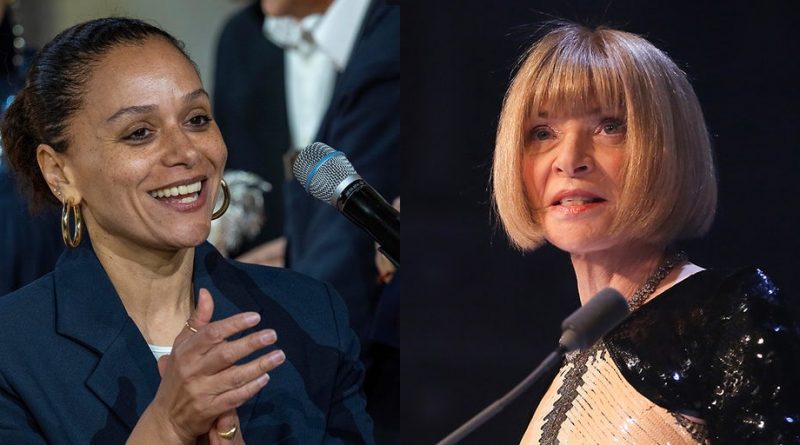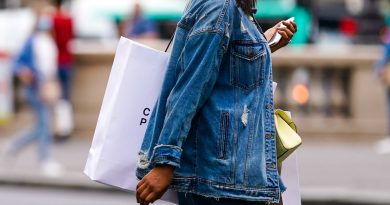A Reckoning and Reboot for Fashion Media | BoF Professional, This Week in Fashion
This week, Harper’s Bazaar’s appointment of Samira Nasr, the first woman of colour to run Hearst Magazine’s premier fashion title, stood in stark contrast to the employee-led uprising over racial discrimination at rival media giant Condé Nast, publisher of Vogue.
“As the proud daughter of a Lebanese father and Trinidadian mother, my worldview is expansive and is anchored in the belief that representation matters,” said Nasr in a welcome video. “My lens, by nature, is colourful, and so it is important to me to begin a new chapter in Bazaar’s history by shining a light on all individuals who I believe are the inspiring voices of our time.”
Meanwhile, as the anti-racism protests that have engulfed the US spread from the streets to the corridors of Condé Nast, accusations of bias forced the departures of two executives. And this is likely just the start of a wider reckoning at the publisher.
When Anna Wintour, the imperious editor of US Vogue and Condé Nast’s artistic director, issues an apology admitting her magazine, the most powerful title in American fashion, has published “hurtful and intolerant” material and failed to support black talent, you can be sure something big is happening.
“I want to say plainly that I know Vogue has not found enough ways to elevate and give space to black editors, writers, photographers, designers and other creators,” she wrote in a memo, which was obtained by reporters this week. “We have made mistakes too, publishing images or stories that have been hurtful or intolerant. I take full responsibility for those mistakes.”
After a damning New York Times piece headlined ‘Can Anna Wintour Survive the Social Justice Movement?’ and much speculation, Condé Nast CEO Roger Lynch, speaking at a company town hall on Friday, said Wintour would not resign. But the mounting pressure is another blow to the legacy publisher which is already reeling from the shift from print to digital, exacerbated by sharp cuts to advertising spend brought on by the Covid-19 crisis, and the persistence of a decadent leadership style that is out of sync with Millennial employees.
Younger digital media companies have also come under fire. On Monday, Christene Barberich resigned as editor of Vice Media’s Refinery29 after former employees said they had experienced discrimination at the title. The following day, Leandra Medine Cohen, the founder of fashion website Man Repeller, announced she would “step back” from daily operations after the company faced criticism for laying off a popular black employee and championing a lifestyle some saw as exclusionary, even insulting, as the country grapples with racism and inequality.
“I’m about the same age as Leandra, I also live in NYC but my experience as a Latina is completely dissimilar. Most of the current writers live in a bubble, and the tone-deafness of the web site has become offensive as the world struggles with inequality, racism, etc,” wrote one reader.
“I’m sorry but MR can never be inclusive,” wrote another, citing the “casual-wearing-of-Chanel-while cooking videos, the expensive baby clothes, the celeb friendships, the white women summer in the Hamptons photography, the endless Sex and the City references.”
In today’s climate of inequality and outrage, is privilege still aspirational?
The comments, which make the inescapable link between race and socio-economic class, underscore a looming challenge for fashion media. Even if publishers were able to successfully root out their racial biases, refresh their executive teams and pivot their business models, they face another problem that gets to the very core of why they exist.
Most fashion magazines are fundamentally built on selling aspiration to a privileged lifestyle, complete with goods sold by luxury advertisers that the affluent can have while others can’t. But in today’s climate of inequality and outrage, is privilege still aspirational?
As protestors fill the streets and activism goes mainstream, moving to the centre of the cultural conversation, a new generation of Americans is forcing politicians, brands, celebrities and others to better define their values and do right by society. Indeed, the country finds itself at a pivotal moment in its history that could prove as formative for Millennials as 1968 was for Baby Boomers and the pursuit of privilege is giving way to something new. To be clear, aspiration is not dying, but the lifestyle to which large parts of society aspire is shifting.
Some have proven fashion media can adapt. Edward Enninful, the British-Ghanaian editor of British Vogue, has successfully brought a more inclusive vision to his strategy for the magazine, while maintaining its appeal to luxury advertisers. The title recently featured a community midwife, a train driver and a supermarket worker on its three July covers. The move was a tribute to the everyday workers on the front lines of Britain’s response to Covid-19, and the images, shot by Jamie Hawkesworth, managed to feel aspirational in a new way.
Nasr’s Bazaar also offers a blueprint for the future. Not only is she the first woman of colour to helm America’s oldest fashion magazine. But she has already begun to lay out a vision for remaking the title with a far wider, more inclusive and more overtly political lens than her predecessors, making clear her intent to reimagine what a fashion magazine should be in 2020.
“To all the protestors, community organisers, activists and those currently fighting to be safe, to be seen and heard through our own narratives, I see you, I thank you and I hope we can join forces to amplify the message of equality, because black lives matter,” she said in her welcome video, lending support to those fighting for social justice. “Great style is about more than how we wear our clothes; it is also how we see and occupy space in the world around us.”
Just how far Nasr will be able to push without alienating advertisers remains to be seen. But it’s clear that her magazine will pursue a new kind of aspiration — not to social privilege but to social progress — and smart brands aiming to credibly evolve their own messaging to meet the magnitude of the moment will likely see Nasr as a valuable ally.
THE NEWS IN BRIEF
FASHION, BUSINESS AND THE ECONOMY

Chanel Cruise 2020/21 | Photo: Karim Sadli
Chanel digital Cruise launch disappoints. The luxury megabrand initially planned to host a physical show in Capri, Italy, which would have been Artistic Director Virginie Viard’s first big destination show. The response to the digital launch was lacklustre, underscoring the challenge of presenting collections online. A seven-minute video only garnered about 217,000 views on Instagram and 12,000 views on YouTube in its first eight hours online, only a fraction of Chanel’s 39.9 million Instagram followers and 1.59 million YouTube subscribers, and some critics were unconvinced.
London’s digital fashion week begins. Rolling out between June 12 and June 14, the online event — hosted on londonfashionweek.co.uk — is shaping up to be a muted affair, consisting largely of short films. The official schedule currently includes around 20 brands including Charles Jeffrey and Nicholas Daley, with stars like JW Anderson and Craig Green having previously decamped for Paris.
Tiffany amends debt agreements amid LVMH deal and 44% sales slump. Quarterly sales fell 44 percent as the coronavirus outbreak gutted demand for its luxury jewellery. Although net sales dropped to $555.5 million compared to a profit of $125.2 million a year earlier, Tiffany said it had ample cash and was in compliance with all debt covenants. LVMH Chief Executive Bernard Arnault was said to be exploring ways to lower the price of last year’s $16 billion acquisition, but he has decided not to renegotiate the agreed price for now.
Moncler expands into perfumes. The Italian luxury brand has signed an agreement with Interparfums to start selling fragrance lines in a bid to diversify its brand amid coronavirus uncertainty. The license agreement will last until 2026 with the possibility of a five-year extension, and the partnership’s first products are set to launch in 2022. The move comes after Moncler saw a 18 percent drop in sales in the first three months of the year.
Macy’s raises $4.5 billion to shore up funds as stores reopen. Shares of the company, which also owns Bloomingdale’s, surged about 11 percent on the news. The new round of funding will help the retailer steer the business in the immediate future by acquiring more inventory and repaying upcoming debts in 2020 and 2021. The news comes as Macy’s first-quarter sales plunged. The department store chain reported a preliminary adjusted net loss of $630 million compared to a profit of $137 million a year earlier.
Galeries Lafayette faces $1 billion hit. Since the reopening of its stores on May 11, traffic is down by about 20 percent compared to normal times. The family-owned French company, which has 61 stores, was in talks with banks and the finance ministry about a €300 million ($340 million) loan. Lockdown is just the latest in a series of challenges for Galeries Lafayette, which already suffered low footfall last year after multiple shops in central Paris were looted during the “yellow vest” protests.
Inditex posts quarterly loss following store closures. The Zara owner reported a net loss of $465 million despite a 95 percent increase in online sales in April. Inditex said it will invest €900 million a year for the next three years to double down on e-commerce and focus on large stores in key shopping districts, while shuttering 1,000 to 1,200 of its smaller stories in 2020 and 2021. Inditex expects online sales to make up for more than a quarter of its business by 2020, up from 14 percent now.
Guess to close 100 stores worldwide over next 18 months. The fashion retailer suspended rent payments in April and is now in negotiations with landlords. Chief Executive Carlos Alberini said that the closures will be in the US and China as many of the retailers’ leases are set to expire soon, which gives management a chance to renegotiate terms. In a bid to cut costs, Guess has also laid off 150 employees at its LA headquarters and furloughed all retail staff and half its corporate workforce.
Richemont signals HR shakeup after reports of bonus controversy. The Swiss luxury group’s employees are reportedly frustrated about increases to senior executive compensation when most directors received pay cuts. The company’s top management agreed to a 20 percent salary reduction, while total compensation for the senior executive committee in the year through March rose 36 percent to 41.4 million Swiss francs ($43 million). Richemont said it has not yet made any final decisions regarding its HR department.
THE BUSINESS OF BEAUTY

A Sephora store | Source: Shutterstock
Sephora pledges to devote 15% of shelf space to black businesses. The cosmetics giant became the first major retailer to sign onto a pledge to dedicate 15 percent of its shelf space to products from black-owned businesses. The 15 Percent Pledge was conceived by Brother Vellies’ Aurora James in a bid to urge major retailers to support black-owned businesses, which often receive less investment and struggle to get connected to large distributors. Sephora also said it would help improve black business owners’ access to venture capital.
Estée Lauder to boost black hiring and donations after employee complaints. The company will also donate $10 million over three years to the NAACP and other racial equality organisations. Estée Lauder has pledged to hire more black employees, stock more black-owned businesses and implement diversity training programmes after employees called out the company and asked for the removal of family heir and board member Ronald Lauder over his affiliations with Donald Trump.
Unilever opts for a single UK base in a bid to boost dealmaking. Eliminating dual legal structures — currently in the UK and the Netherlands — will result in one class of shares and a single pool of liquidity for the Dove soap maker. As the pandemic transforms consumer behaviour changes and accelerates e-commerce, a flexible approach to stock-based acquisitions and divestments becomes more important.
PEOPLE
Samira Nasr appointed editor-in-chief of Harper’s Bazaar. Currently Vanity Fair’s executive fashion director, the stylist will succeed Glenda Bailey, becoming the magazine’s first black editor. Overseeing both print and digital as of July 6, her mandate at Harper’s Bazaar will likely involve creating content that reaches a new and younger audience without losing too much of its pre-existing one. Nasr is joining the brand at a particularly challenging time for magazines, which are suffering from the shift from print to digital and a precipitous decline in advertising spend.
Patagonia CEO Rose Marcario departs. Marcario has stepped down as chief executive of the outdoor apparel brand after 12 years with the company. A successor is yet to be named, but the Patagonia said its chief operating officer Doug Freeman will take over the transition during the interim period. According to an interview with Fast Company, Marcario said her resignation has been in the works since the end of 2019. The company has faced recent criticism on social media for its failure to adequately represent minority voices.
Munroe Bergdorf joins L’Oréal in D&I role. The black transgender model announced she will be joining L’Oréal as a consultant sitting on the company’s newly formed UK diversity and inclusion advisory board. The move comes after Bergdorf criticised the beauty giant’s message of support for the Black Lives Matter movement on social media for being at odds with their previous actions. In 2017, L’Oréal dropped her from a campaign after she posted a message to Facebook on white privilege and racism.
MEDIA AND TECHNOLOGY
Condé Nast faces criticism over racial discrimination. The Vogue publisher is the latest media company under scrutiny after minority employees spoke out about racial bias in the workplace. The editor of Bon Appétit has since resigned, as has a vice president who oversaw video programming, while Anna Wintour, editor-in-chief of American Vogue, has issued an apology for “hurtful and intolerant” content and not supporting black talent. Refinery29, Man Repeller, Paper magazine and Who What Wear have also come under fire for alleged racial discrimination and lack of inclusivity.
JD set to raise $3.9 billion in Hong Kong listing. The e-commerce company priced 133 million new shares at HK$226 ($29) each, according to people familiar with the matter, making it the second-largest listing this year after Beijing-Shanghai High Speed Railway. The economic downturn caused by the coronavirus outbreak initially slowed the sales of first-time shares worldwide with issuers putting their listing plans on hold. But activity has since picked up, and last week was the busiest for IPOs in 2020 so far.
Compiled by Daphne Milner.
BoF Professional is your competitive advantage in a fast-changing fashion industry. Missed some BoF Professional exclusive features? Click here to browse the archive.



